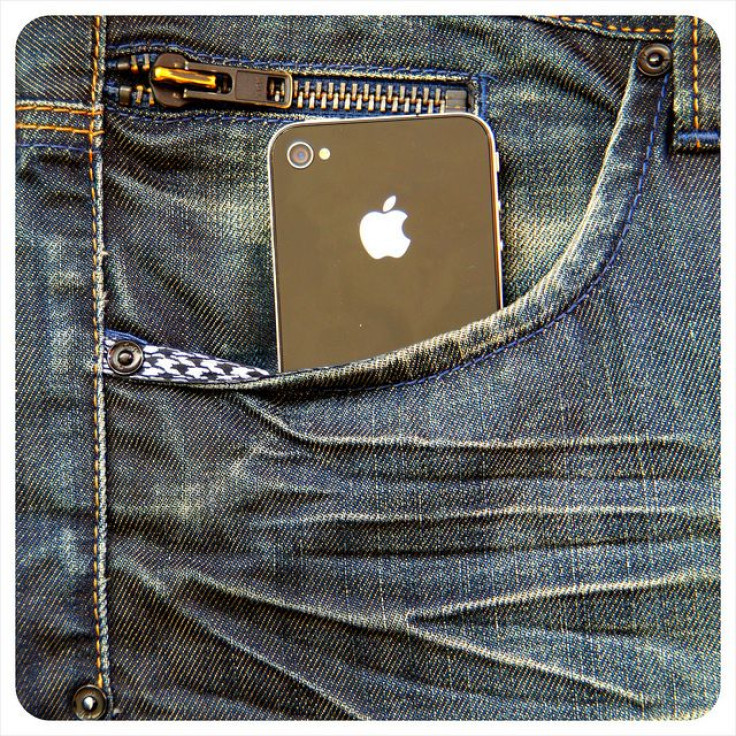'Butt Dials' to Blame for 100 Million Calls to 911 a Year

Across the country, the proliferation of cell phones is causing a crisis for 911 dispatchers. Back in 2003, only 29 percent of 911 calls were made by cell phones. In 2010, that number jumped to 59 percent, and dispatchers only expect that percentage to rise.
While cell phones have made it easier for people to be more accurate in their reports from the scene of the crime, 911 dispatchers say that nearly 40 percent of phone calls made to emergency crisis centers are accidental calls.
That 40 percent tally comes out to a huge number. In 2011, Americans made 240 million calls to 911, making the percentage of accidental calls add up to 100 million phone calls. Evanston, Illinois' crisis centers reported that they receive 500 butt dials a month. In New York City, it adds up to 10,000 a day.
So what causes the problem? In some cases, phones dial 911 when they are unlocked and jostling around in purses. Some people have 911 saved in their speed dial, and other phones can call 911 when people accidentally activate their Emergency Call function.
Unfortunately, these accidental calls cause 911 dispatchers to use time that could be spent deploying resources to actual emergencies. Dispatchers are expected to listen in on the call for a certain amount of time in order to determine if it is an emergency, even if no one is speaking. Some jurisdictions require cell phone dispatchers to trace mobile calls, a sometimes difficult task and a waste of technological resources if the event does not happen to be an emergency.
But accidental calls are not the only problem with which emergency crisis responders can contend. Because cell phones are ubiquitous nowadays, they may receive several calls about the same event. Recently, 911 received 6,000 calls about a missing teen girl who had alerted Twitter followers about an intruder in her home; that event turned out to be a hoax.
Often, people seem to be unaware of what constitutes as an emergency as well, which can have ramifications for callers in the midst of a bona fide emergency. On the Fourth of July this year, hundreds of people in Wichita, Kansas called to report fireworks. Callers trying to report a motorcycle accident in the area received a busy signal because the signal was jammed. In other municipalities, 911 dispatchers have received calls about incorrect change from a cashier, misplaced garbage and phone number requests.
Complicating matters is the fact that the Federal Communications Commission required non-initialized cell phones, phones unregistered with a plan, to be able to call 911. The well-meaning mandate has led to thousands of difficult-to-trace prank calls. In East Los Angeles, one man made 18,000 prank calls to 911 over the course of six months before he was arrested. It is estimated that 18 percent of prank calls come from these phones.
To make matters worse, these issues are coming at a difficult time for many emergency call centers. Because they are funded by the states, rather than the federal government, many state legislatures have raided their coffers in order to make up for budget shortfalls.
It is no surprise, then, that there is an enormous amount of turnover for 911 dispatchers. The job, which pays about $30,000 to $40,000 a year, and requires long, stressful hours, has a turnover rate of 16 to 19 percent. Some 911 dispatchers have reported PTSD.
What is the solution? Some say better public education would help. Others say, on an individual level, to remove 911 from speed dial, to make sure to lock your phone, and to stay on the phone if you do accidentally dial an emergency call center just to affirm that it is not an emergency.
Other solutions, like changing 911 to something more difficult to remember, have been shot down. Experts point out that, in Europe, only a quarter of the population knows that the emergency line is 112. Comparatively, nearly 100 percent of the population of the United States knows 911.
Accidental calls are not a total waste, however. Over the summer, authorities in Scranton, Pennsylvania were alerted to a drug deal when a buyer accidentally dialed 911. Similarly, police were able to catch some car thieves earlier this year when one of the perpetrators accidentally called their local call center.



























